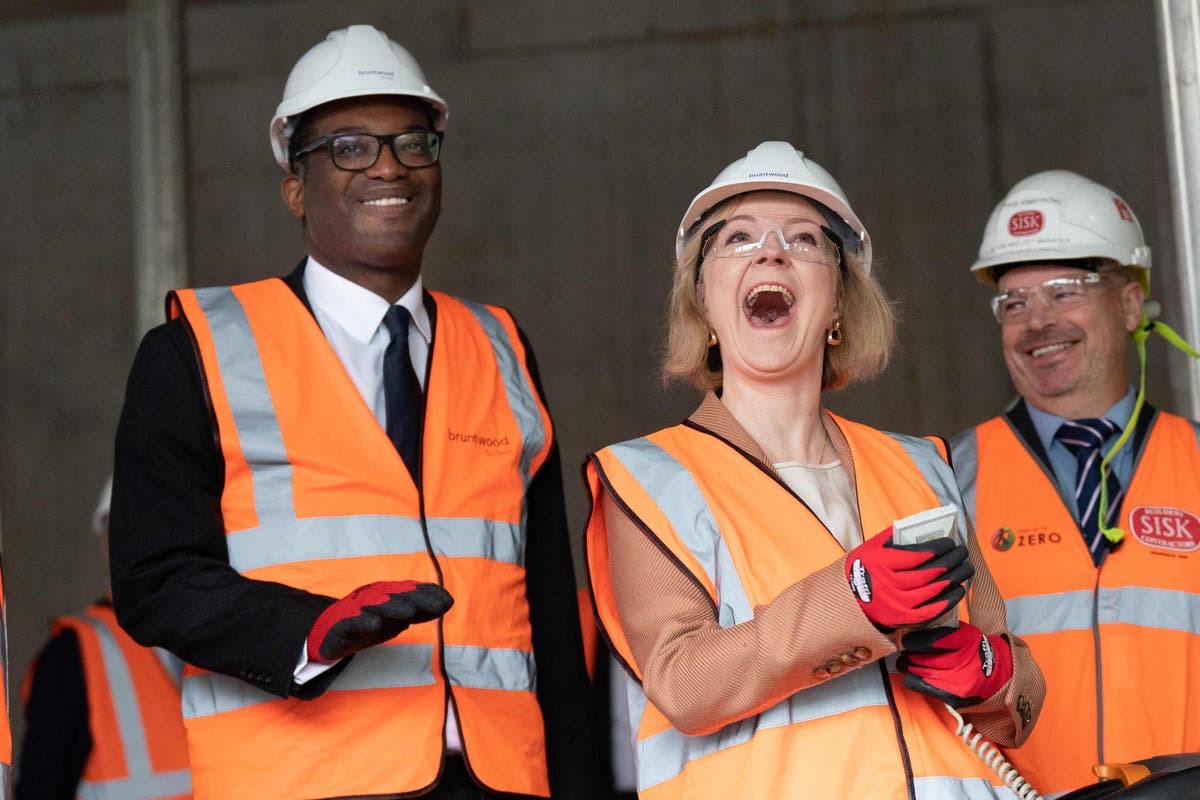National Insurance hike is unnecessary
WHY is it that every time a public service comes under pressure, politicians always want to dip further into our pockets?
We all know that staff in the NHS performed heroically during the pandemic and are now facing a backlog, including crucial cancer appointments.
And we value the tireless work of care home staff, pulling together in a social care system that needs fixing.
But a National Insurance rise — as planned for this April by the Government — is no sustainable way to solve these two problems. Instead of increasing National Insurance, the answer is to make better use of the money we have.
If we want to spend without picking the pockets of the poor to pay for it, we need to save money first.
How to properly fund social care is a question most politicians have dodged. That’s because, with more people living longer, costs are going up.
But the current model — tax rises to cover costs — just papers over the cracks.
So how can the Government save that money from what it already spends?
Here I highlight areas where costs could be saved . . .
Invest in automation
Improving the use of technology can help.
Our research — backed by former health secretary Matt Hancock — showed it could free up staff time to focus on patient care and save billions in the process.
Estimates suggest the £12billion funding the Government plans to pump in with the National Insurance rise could be found through increased automation of services, i.e. robots.
That can be anything from booking appointments and managerial tasks to processing prescriptions — freeing up time for one-to-one care. Pathology costs alone could be cut by £1.1billion a year.
There may be upfront costs, but longer-term savings would outweigh them.
Savings £12billion
Rein in extravagance
FROM buying snazzy Dyson fans at numerous NHS trusts to the £5,000 on a hot tub from a personal health budget issued by NHS North Tyneside Clinical Commissioning Group, the NHS has squandered money on dubious purchases.
The TaxPayers Alliance has uncovered other profligacy, including the £579 spent by NHS Norfolk and Waveney CCG on a PlayStation 4 with VR package.
And the £3,000 from NHS West Sussex CCG for a National Trust membership, Merlin Pass and Chelsea season ticket.
There is more . . . a company owned by the University Hospitals of Derby and Burton NHS Trust lost £360,000 when a music festival featuring Rita Ora and Rudimental — planned as a fundraiser — was cancelled.
Savings £360,000+
Scale back test and trace
A staggering £37billion was allocated to the test and trace programme over two years.
That breaks down as £22billion for 2020-21 and £15billion for 2021-22.
Eye-watering sums, with billions handed out to private contractors and consultants.
The central objective of the test and trace system was to prevent lockdowns and by this measure it has failed.
Savings up to £15billion
Fair price for essentials
IN his 2016 report on NHS productivity, Lord Carter discovered that in a sample of 22 trusts covering approximately 16 per cent of NHS spending, in one year alone they used 30,000 suppliers and 20,000 different product brands.
As a result, prices varied wildly – with some items, such as toilet rolls, costing almost twice as much depending on who they were bought from.
Lord Carter suggested a smarter procurement strategy could save £700million.
Savings £700million
End health tourism
HEALTH tourism — where overseas patients use NHS services for free when they are not entitled to — costs the Government millions every year.
In 2013, a landmark government report put this figure at £388million a year — with only around 16 per cent recovered.
Our own research in 2020 reveals unpaid bills for foreign patients still running at £55million.
Savings £55million
Cull agency and outside staff
THE NHS is a huge employer of agency staff, often at inflated fees.
A report in August 2018 showed that the NHS could free up £480million to reinvest in services by cutting back on agency workers.
Savings £480million
Reduce quangos
OUR research shows that reducing the number of NHS quangos from 19 to seven could save more than £750million. Cutting the number of quangos needing management, care and communications could save a further £40million per year.
Savings £790million
Stop missing appointments
WE patients can do our bit too — missed appointments (assuming you can actually get one) cost the NHS hundreds of millions a year.
If you think your GP sends too many reminder texts, remember they’re actually trying to save taxpayers’ cash by getting people there on time.
In 2018, the cost to the taxpayer of no-shows was a staggering £350million.
Savings £350million











